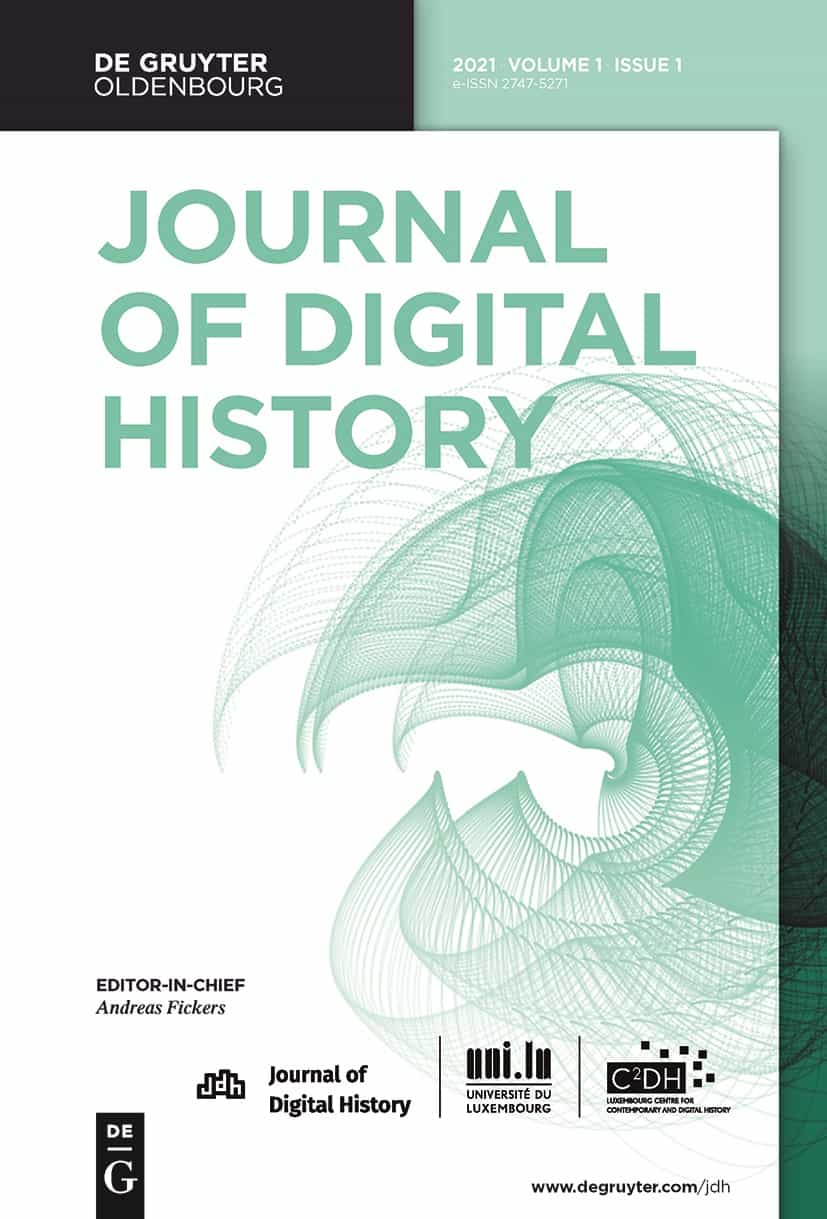Writing (Digital) History
The future is now! With our new Open Access “Journal of Digital History” we want to open up the black boxes of digital scholarship and elevate the study of history to a whole new level.
Whoever said that history does nothing but look back?
The Journal of Digital History, a joint initiative of the Luxembourg Centre for Contemporary and Digital History (C²DH) and De Gruyter, aims to put into practice Robert Darnton’s original idea of the multilayered publication and to enable digital historians and their readers to seize all the epistemological opportunities that the internet offers.
You are currently viewing a placeholder content from YouTube. To access the actual content, click the button below. Please note that doing so will share data with third-party providers.
If we understand digital history as the practice of doing history by means of digital sources, tools, and research infrastructures, then it is an epistemological imperative to create transparency about the impact that the digital world is having on the iterative process and the research life cycle.
“This call for transparency, to open up the black boxes of digital scholarship, applies to all stages of the research process.”
This call for transparency, to open up the black boxes of digital scholarship, applies to all stages of the research process – from the search for information and sources to their critical analysis, right up to their interpretation and visualization in various forms and formats. Combining critical digital skills with a self-reflexive approach is a field referred to as digital hermeneutics, and the multilayered articles being promoted by the Journal of Digital History (JDH) are one possibility for putting digital hermeneutics into practice.
Indeed, we are aiming to create a multifaceted publication platform that will provide new opportunities to showcase data-driven scholarship and transmedia in the field of history by:
- Inviting historians to experiment with new digital practices of writing and visualizing history, and making historical arguments, by means of an editorial system based on sound open-source software that will allow readers to interact with code and data
- Enabling readers to critically engage with data-driven historical scholarship by using an explorative, scalable reader interface
- Promoting open science and open data, as well recognition for a culture of digital scholarship based on collaboration, interdisciplinarity, and co-design
Exploring the “Trading Zone”
We developed the journal together with De Gruyter and the JDH team at the C2DH, as well as in a series of workshops attended by the journal’s board and our first authors (who we will never be able to thank enough, as they were so enthusiastic all through this process). This iterative process very much breathed into the journal a spirit of “thinkering,” a concept that informs all of the research and development activities at the C2DH, which can be viewed as a “trading zone” between historians, computer scientists, web developers, and designers.
Furthermore, during a number of “work in progress” events, where we presented the journal at research seminars and conferences, we were able to gather important feedback on the expectations and needs of our peer community and receive highly valuable and useful recommendations and suggestions based on our colleagues’ practical experiences as the authors, reviewers, and editors of digital scholarship.
The Journal of Digital History is a collective effort, and we hope that the results will meet our readers’ expectations. It will help to gain some recognition for the historians exploring new frontiers of historical scholarship by experimenting with new digital tools and technologies.
Acknowledging the Power of Collaboration
We fully subscribe to Simone Lässig’s recent plea for a new “reputation culture” for digital scholarship in the historical profession. One important element in this renewed reputation culture will be demonstrating that most of the digital scholarship conducted in the field of history is of a collaborative nature.
Instead of further propagating the Renaissance idea of the historian as a single author and genius storyteller, the trading zones of digital history are generally characterized by interdisciplinary collaborations and interactional expertise shared between historians, computer or data scientists, information specialists, developers and designers, specialist archivists and librarians, cultural heritage curators, and – in the case of digital public history and citizen science projects – local communities and “amateurs.”
We have made it our – and the journal’s – mission to promote these kinds of collaborations and the sharing of authority.
Why not have a look for yourself?
The launch event of the journal is also available on Youtube:
You are currently viewing a placeholder content from YouTube. To access the actual content, click the button below. Please note that doing so will share data with third-party providers.
[Title image: created by a software called “generative art” initially developed by Katharina Brunner (under the GNU GPL licence).]
